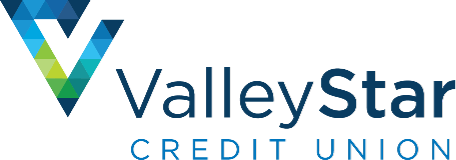Learning to implement personal finance tips in a way that works for your lifestyle can seem intimidating, but it’s never too late to work on creating healthy financial habits. Whether you want to achieve financial freedom, or just want to learn money management, it all starts with forming good financial habits. To help you get started, here are 9 personal finance tips for financial success.
1. Set meaningful goals to build good financial habits
Setting goals is arguably the most important step to achieving healthy financial habits. Without goals, you aren’t able to track progress or celebrate important milestones. It may also be difficult to stay motivated on your financial wellness journey without seeing your achievements. The best way to form measurable goals is to set “S.M.A.R.T” goals: Specific, Measurable, Achievable, Relevant and Time-bound.
S.M.A.R.T goals are measurable and time-bound. This makes the goals easy to track and hold you accountable to your money management deadlines. These goals are also specific and relevant to financial success and not impossible to achieve. S.M.A.R.T goals are more effective than goals such as “pay off debt soon” or “make more money.”
Here are some examples of S.M.A.R.T financial goals:
- Pay off $30,000 of debt in five years
- Save $6,000 for vacation in 11 months
- Invest $3,000 in four months
As you can see, financial goals can be big or small and long-term or short-term. No matter your goals, you can use financial tips, such as setting goals, to keep yourself motivated while developing good financial habits.
2. Create a budget to guide money management
Creating a budget is an essential personal finance tip to be independent financially. It is important to keep track of how much money is coming in and going out of your accounts each month. Keeping track of your money is critical in ensuring that you don’t spend more than you make, which will hinder your ability to establish financial wellness.
When forming your budget, it’s important to keep some basic budgeting tips in mind. Always note how much money you bring in each month from your paycheck, how much you typically spend on “needs,” such as living expenses and groceries, and how much you allocate for “wants,” such as eating out, travel and shopping.

There are many ways to approach creating a monthly budget. Pick what makes sense for you and your money management goals. As a general rule, if you’re able to save 20-30% of your monthly income for savings, you are setting yourself up for great financial wellness!
3. Create independence by paying yourself first
“Pay yourself first” is a personal finance tip that makes up one of the easiest and best ways to save money. Basically, it means you pay yourself by saving money before you spend money. For example, when you get paid, you will put aside a set amount or percentage and deposit it into your savings account. This set amount or percentage is usually determined by your money management goals.
Paying yourself first ensures that you save first and spend later. This is a good financial habit to develop, and we guarantee your future self will thank you for putting your money management goals first!
4. Focus on your credit to establish financial wellness
Healthy financial habits will help establish a good credit score, but maintaining your credit is important to keep financial wellness. A strong credit history and credit score may help you get better interest rates on loans, credit cards and lines of credits. Plus, many insurance companies and landlords refer to your credit score to make decisions.
What you borrow and when you repay it makes up your credit history. That’s why good financial habits revolve around paying off debt. Credit reporting agencies collect this information from various sources and issue reports based on your borrowing and debt-paying habits. All this information contributes to your credit score. Many creditors provide your credit score monthly, which allows you to track your score on a regular basis to ensure you’re maintaining financial wellness.
5. Pay off high-interest-rate debt to be independent financially
Money management will show that it’s important to eliminate the debt that is costing you the most. It’s helpful to make a list of all your debt amounts and interest rates. It’s a good financial habit to pay down your highest-interest-rate debt first to get the most financial reward. Highest-interest-rate debt can include items such as credit cards, because the higher the interest rate, the more money you’re charged in borrowing fees.
By targeting this debt, and paying it off first, you’ll reduce the total amount you owe faster, which improves financial wellness. You’ll also free up money to put toward savings, or paying down your next debt. Make this a financial habit and use this approach to pay down accounts with the highest interest rates, one by one, while still making regular payments on the rest.
Financial tips for making debt payments:
- Pay more than the minimum
- Pay your credit card bills more than is required each month
- Set up payment reminders and recurring payments
6. Automate your finances to help with money management
A great way to simplify money management and ensure your bills are getting paid on time, every time, is by automating your finances. You can automate your finances by setting up Bill Pay with your bank account. Bill Pay in an online bill payment service that allows you to pay a business or person. You determine who you want to pay and when you want to make the payment.
Keep in mind that you will still have to regularly review your finances to ensure accuracy, but this is an easy way to establish a healthy financial habit without the hassle. This will also help your financial wellness in the future.
7. Build an emergency fund to ensure financial wellness
A personal finance tip that many skip out on is building an emergency fund. An emergency fund is a safety net that ensures you don’t dip into your other funds designated for routine expenses. Emergency funds pay for unexpected events such as a broken-down car, job loss or home repairs.
If you don’t have an emergency fund, your chances of accumulating debt increases because you may have to use money that you planned for other bills in order to pay for the emergency expense. This scenario is a prime example of how quickly unexpected events can ruin money management and financial wellness.
Bulking your emergency fund is one of the best money management moves you can make. An expert financial tip is to save three to six months of living expenses to cover unexpected situations. This amount heavily applies if you have one source of household income, are paying off debt or have just started budgeting.
8. Use these financial tips to save for retirement
A personal finance tip to keep in mind is that It’s never too soon to save for retirement, but the sooner you start saving, the less you may actually need to put away. Once you’re on the right track, you may factor retirement into your budgeting tips. If you have access to a employer sponsored retirement plan (QRP) such as a 401(k), you should take advantage of this valuable benefit. Don’t forget to update this change in your money management plan.
If your employer offers matching contributions, it’s a good financial habit to consider contributing at least as much as the match – this is free money that you don’t want to pass up. If your employer doesn’t offer a QRP, think about opening an IRA and consider contributing the maximum amount each year. Retirement may seem too far off to worry about, but it’s never too early to set yourself up for future financial wellness.
9. Regularly review and update your financial plan to keep good financial habits
As we’ve already discussed, having a money management plan is arguably the most important step to achieving financial wellness, but just creating the plan is not enough. It is equally as important to make sure you review and update the plan regularly.
It’s a good financial habit to check your plan at least once a month and aim to update any important information at least every three to six months. You should also update your plan anytime a significant life event takes place, such as purchasing a house, getting married or getting a new job. Reviewing your plan often will help ensure you stay on top of money management no matter what life may bring.
Focus on maintaining good financial habits
We have provided 9 personal finance tips to help you maintain healthy financial habits, but the list goes on! Sometimes it can be as easy as packing your lunch a couple of days a week to avoid eating out, or making coffee at home instead of stopping on the way to work. Money management looks different for everyone. No matter which tips you try, remember that each step you take toward developing good financial habits will put you that much closer to achieving your financial wellness goals.

